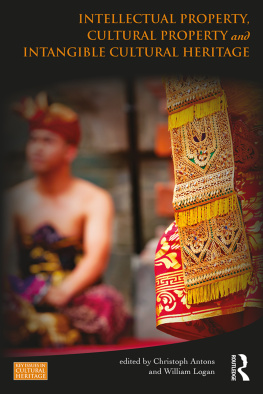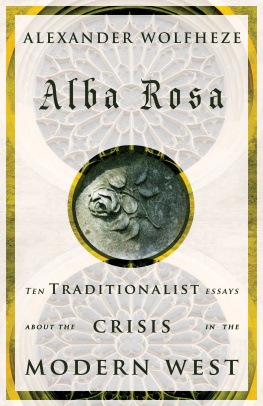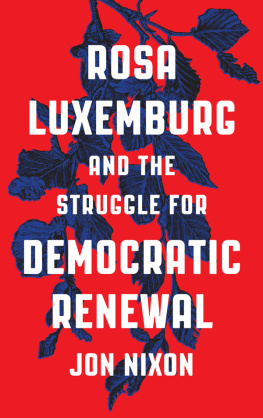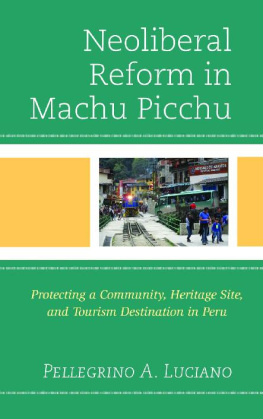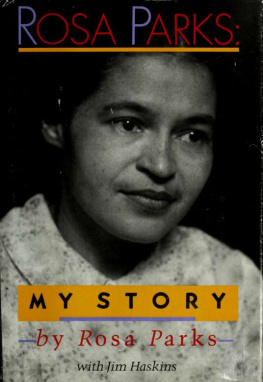Rosa De Jorio - Cultural Heritage in Mali in the Neoliberal Era
Here you can read online Rosa De Jorio - Cultural Heritage in Mali in the Neoliberal Era full text of the book (entire story) in english for free. Download pdf and epub, get meaning, cover and reviews about this ebook. year: 2016, publisher: University of Illinois Press, genre: Politics. Description of the work, (preface) as well as reviews are available. Best literature library LitArk.com created for fans of good reading and offers a wide selection of genres:
Romance novel
Science fiction
Adventure
Detective
Science
History
Home and family
Prose
Art
Politics
Computer
Non-fiction
Religion
Business
Children
Humor
Choose a favorite category and find really read worthwhile books. Enjoy immersion in the world of imagination, feel the emotions of the characters or learn something new for yourself, make an fascinating discovery.

- Book:Cultural Heritage in Mali in the Neoliberal Era
- Author:
- Publisher:University of Illinois Press
- Genre:
- Year:2016
- Rating:4 / 5
- Favourites:Add to favourites
- Your mark:
- 80
- 1
- 2
- 3
- 4
- 5
Cultural Heritage in Mali in the Neoliberal Era: summary, description and annotation
We offer to read an annotation, description, summary or preface (depends on what the author of the book "Cultural Heritage in Mali in the Neoliberal Era" wrote himself). If you haven't found the necessary information about the book — write in the comments, we will try to find it.
Cultural Heritage in Mali in the Neoliberal Era — read online for free the complete book (whole text) full work
Below is the text of the book, divided by pages. System saving the place of the last page read, allows you to conveniently read the book "Cultural Heritage in Mali in the Neoliberal Era" online for free, without having to search again every time where you left off. Put a bookmark, and you can go to the page where you finished reading at any time.
Font size:
Interval:
Bookmark:

General Editor
 This book is printed on acid-free paper.
This book is printed on acid-free paper.| ADEMA | L'Alliance pour la dmocratie au Mali (Alliance for Democracy in Mali) |
| ADID | Association pour le dveloppement de l'Islam Djenn (Association for the Development of Islam in Djenn) |
| AKTC | Aga Khan Trust for Culture |
| AQIM | al-Qaeda in the Islamic Maghreb |
| CMLN | Comit militaire de libration nationale (Military Committee for National Liberation) |
| CNID | Congrs national d'initiative dmocratique (National Congress for Democratic Initiative) |
| FAMA | Le Front africain pour la mobilisation et l'alternance (African Front for Mobilization and Change) |
| HCIM | Haut conseil islamique du Mali (High Islamic Council of Mali) |
| ICC | International Criminal Court |
| ICOMOS | International Council on Monuments and Sites |
| MC | Mouvement citoyen (Citizens Movement) |
| MNLA | Mouvement national de libration de l'Azawad (National Movement for the Liberation of Azawad) |
| MUJAO | Movement for Unity and Jihad in West Africa |
| ORTM | Office de Radiodiffusion-Tlvision du Mali (Office of Radio and Television of Mali) |
| PDES | Parti pour le dveloppement economique et social (Party for Economic and Social Development) |
| PSP (new) | Parti pour la solidarit et le progress (Party for Solidarity and Progress), a party that claims to be the heir of the old PSP party |
| PSP (old) | Parti soudanais progressiste (194658) (Sudanese Progressive Party) |
| SADI | Solidarit africaine pour la dmocratie et l'indpendance (African Solidarity for Democracy and Independence) |
| UDPM | Union dmocratique du peuple malien (Democratic Union of the Malian People) |
| UDS | Union dmocratique segouvienne (Democratic Union of Seguvians) |
| UM-RDA | L'Union malienne du rassemblement dmocratique africain/faso jigi (faso jigi) (Malian Union of the African Democratic Rally) |
| UNEEM | Union nationale des lves et tudiants du Mali (National Union of Pupils and Students of Mali) |
| UNESCO | United Nations Educational, Scientific and Cultural Organization |
| UNFM | Union nationale des femmes du Mali (National Union of Malian Women) |
| US-RDA | Union soudanaiseRassemblement dmocratique africain (Sudanese UnionAfrican Democratic Rally) |
Font size:
Interval:
Bookmark:
Similar books «Cultural Heritage in Mali in the Neoliberal Era»
Look at similar books to Cultural Heritage in Mali in the Neoliberal Era. We have selected literature similar in name and meaning in the hope of providing readers with more options to find new, interesting, not yet read works.
Discussion, reviews of the book Cultural Heritage in Mali in the Neoliberal Era and just readers' own opinions. Leave your comments, write what you think about the work, its meaning or the main characters. Specify what exactly you liked and what you didn't like, and why you think so.


